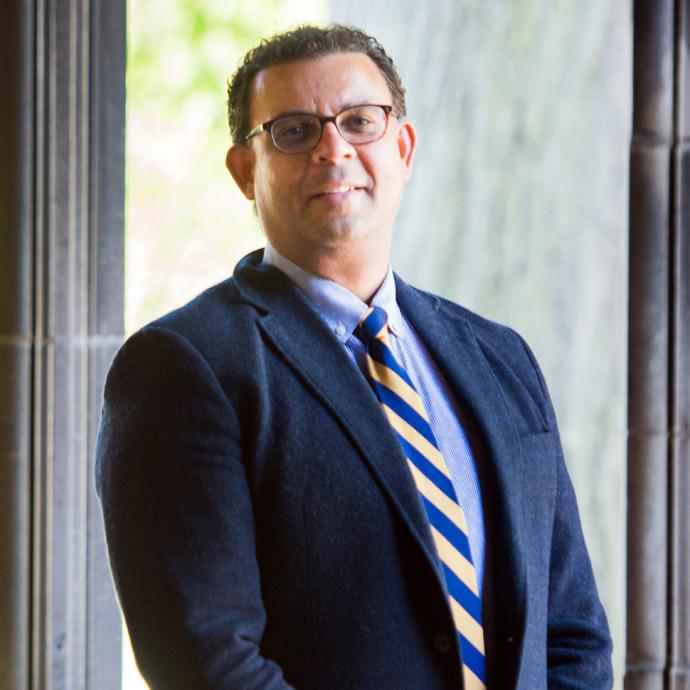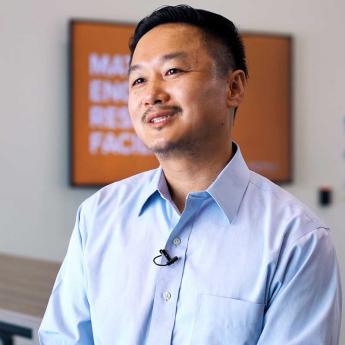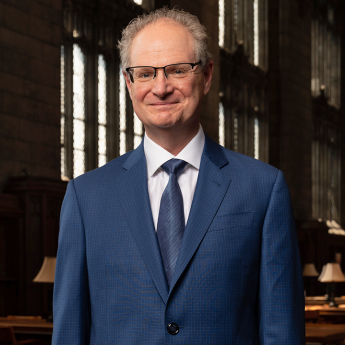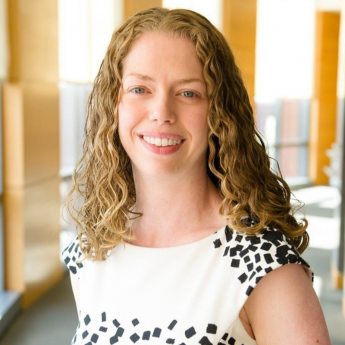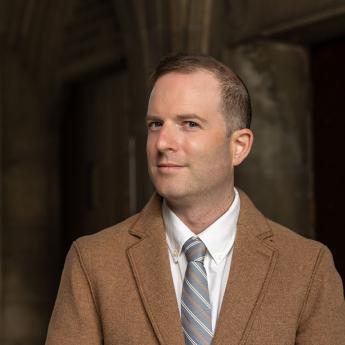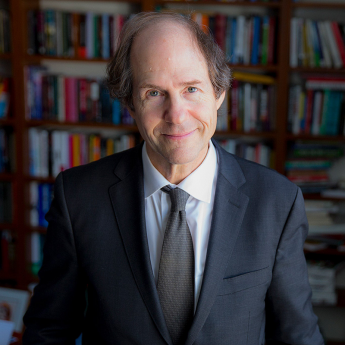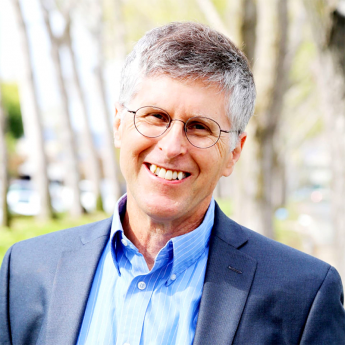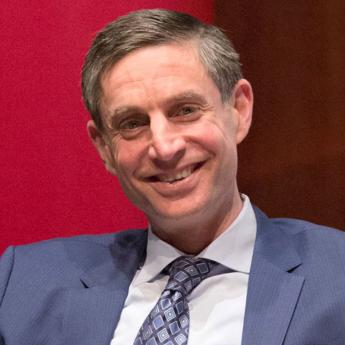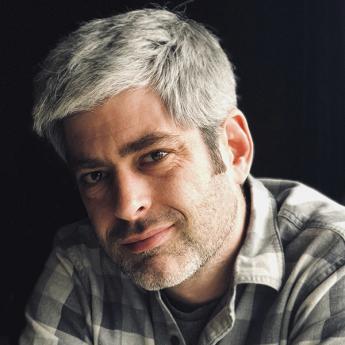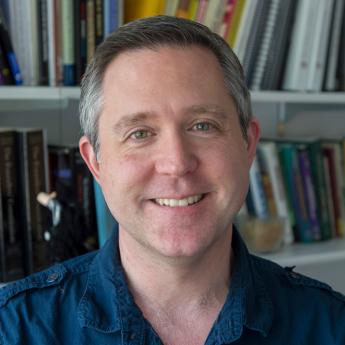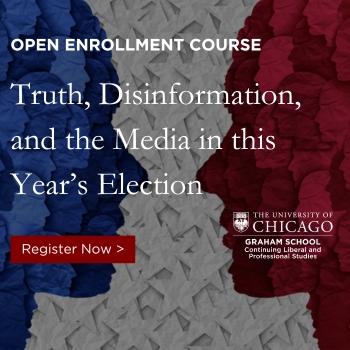Show Notes
The looting of the National Museum of Iraq in Baghdad became one of the defining moments of the second Iraq War. Christopher Woods, the director of the Oriental Institute, one of the world’s foremost research centers on the ancient Near East, says that in moments like these when archaeology and politics intersect, archaeology becomes a kind of statecraft.
Since the Gulf Wars, archaeologists have been unable to work in Iraq. But, under Woods leadership, the Oriental Institute is returning to excavations in the region. If the looting of the Baghdad museum is on one end of the archaeology as statecraft spectrum, this historic return to Iraq is on the other.
Subscribe to Big Brains on Apple Podcasts, Stitcher and Spotify.
(Episode published September 23, 2019)
Recommended:
- OI marks 100 years of discovery in ancient Middle East
- Ancient Persian artifact nearly 2,500 years old returns to Oriental Institute
- Christopher Woods’ Ask Me Anything on Reddit
- Christopher Woods appointed director of the Oriental Institute
- Faculty members receive named, distinguished service professorships
Transcript:
Paul Rand: It was one of the defining moments of the Iraq War…
Tape: Art Historians call it the desecration of civilization. For three days in April 2003, looters rampaged in the storerooms and galleries of Iraq’s national museum, making off with some 15 thousand priceless objects. American troops had no order to intervene and stood by as Iraq’s heritage was plundered.
Paul Rand: One Iraqi official called the looting “the crime of the century, because it affects the heritage of all mankind.”
Tape: One memorable moment that week was when Secretary of Defense Donald Rumsfeld dismissed the looting in Baghdad as unimportant: “freedom’s untidy and free people are free to make mistakes and commit crimes and do bad things.”
Paul Rand: Christopher Woods, a leading University of Chicago scholar of Sumerian language and writing, says a moment like the looting of the Baghdad museum has a lasting effect on the relationship between Iraq and the U.S.
Christopher Woods: These cultures are very old and they're very proud. I think it’s hard for Americans to sort of wrap their minds around the great antiquity of these civilizations and the pride they have in that antiquity.
Paul Rand: Imagine, for instance, how we would feel if that National Archives were looted, if the constitution was burned. Woods says when archeology and politics intersect, archeological investment becomes a kind of statecraft.
Christopher Woods: Yeah it's interesting and I don't think many people have an appreciation for this.
Paul Rand: Woods is the director of the Oriental Institute at the University of Chicago. The OI is one of the world’s foremost research centers on the civilizations of the ancient Near East. For years, it had maintained archeological digs in Iraq until the Gulf War pushed them out of the country. But now, as the OI marks the hundredth anniversary of its founding, Woods wants to go back…
Christopher Woods: It was one of my goals when I became director to resume excavations in southern Iraq. I'm a sumerologist, so naturally this is something I'd want to do Sumer is in in southern Iraq, and the political climate seems to be evolving in a way that's allowing us to resume our work there.
Paul Rand: If the looting of the Baghdad museum is on one end of the “archeology as statecraft” spectrum, the OI’s plan to resume excavations in southern Iraq is on the other.
Christopher Woods: So the people that we encounter in these countries they're enormously grateful for our interest in their culture. They appreciate what we're doing, they appreciate that we're making it known to the world, they appreciate that we're protecting their civilizations, that this is their ancient heritage that we have an investment, we have a personal and professional investment in their heritage.
Paul Rand: From the University of Chicago this is Big Brains, a podcast about the stories behind the pioneering research and pivotal breakthrough reshaping our world. On this episode, Christopher Woods and archeology as statecraft. I’m your host Paul Rand.
(Break)
Paul Rand: Although the Oriental Institute is responsible for some of the most important archeological finds in the world, many people probably haven’t heard of the OI. But they certainly have heard of one it’s most famous academics, someone we’ve met on this podcast before.
Tape: Indiana Jones…I always knew someday you’ve come walking back through my door…
Christopher Woods: That's right. Yeah well this is a big part of OI lore, something that we're very proud of, Indiana Jones the character of Indiana Jones was inspired by likely two OI professors one James Henry Breasted and the other probably Robert Braidwood.
Tape: Now you studied under professor Ravenswood at the University of Chicago? Yes I did.
Christopher Woods: Ravenswood may be a play on Braidwood, but this idea of this swashbuckling archaeologists traveling throughout the Middle East and encountering all sorts of adventures really goes back to Breasted.
Paul Rand: Of course James Henry Breasted’s legacy goes far beyond inspiring famous movie characters. He’s also responsible for pioneering modern archeology studies and founding the Oriental Institute in 1919.
Christopher Woods: Breasted really had a radical idea at the time, and that was that civilization didn't begin in Greece and Rome as many people assume, but really that it began in the Middle East in an area that he vividly called the Fertile Crescent.
Paul Rand: And what did he mean when he talked about the fertile crescent?
Christopher Woods: So he's speaking of the Arc of settlement, early settlement, that extends from Egypt to Mesopotamia basically. So Mesopotamia is essentially ancient Iraq.Mesopotamia basically is a Greek term that means between the rivers and that refers to the Tigris and Euphrates Rivers which are the life veins of Mesopotamian civilization.
Paul Rand: So, I wonder when we think about our own story, and the story of civilization, how does understanding what's gone on with the Fertile Crescent trace back, change our thinking, enhance our thinking?
Christopher Woods: You know, I would start off by saying that people have a fascination with what's beyond the here and now. Whether it's space, deep space, or the beginnings of the cosmos or the Jurassic period. And with that people have a fascination with their own origins, just consider the craze around DNA ancestory.
Paul Rand: Absolutely.
Christopher Woods: What we have in the ancient Middle East is it's part of our origin story. This is the place where humans created the first villages, where the domestication of plants and animals first took place, where the first cities arose, where the first empires arose. You also have these landmarks in technology that really form the basis of today's world. For instance, writing was invented in the ancient Middle East. And many people identify, rightly or wrongly it's debatable, civilization with writing, right? Writing is a cornerstone of civilization. Well, writing was invented for the first time in the Middle East. And in some cases, what was created in Mesopotamia directly influenced our world. So, if you look at your watch and you see that the minute is divided into 60 seconds, the hour into 60 minutes, the circles are three hundred and sixty degrees, well this all goes back more than 5000 years to Sumer. Sumerians used a sexagesimal or base 60 counting system. What we have in Mesopotamia is you could look at it as the first data point, right. And it's so well documented because of writing. So, we have this very early data point for civilization, and we have copious documentation in terms of the archeological record but also writing. If you look at Mesopotamia for instance, where they wrote with cuneiform on clay tablets, you can dig up a clay tablet today and read it as well as you could 4000 years ago. So you haveallof this data.
Christopher Woods: These civilizations were lost, lost for thousands of years. They really were only discovered in the middle of the 19th century. So, no one really knew what was under the sands of Iraq and Syria and Iran. Up until basically the 19th century. And the first systematic, they're more so like treasure hunting expeditions really but they were fairly systematic at that point, excavations began in the eighteen-fifties and sixties. Butwhen World War One ended, and the Ottoman Empire collapsed, it opened up the entire Middle East to Western scholarship in a way that it hadn't been before. And there was this notion that Breasted had, it was almost sort of part of the of the war effort in fact, that it was America's responsibility now to occupy this intellectual space that had been the purview of Western Europe which had been decimated by the war. And just in the same way that Americans sort of bailed out Europeans in the war they should now really stake the American flag in the Middle East and carry on the tradition of Middle Eastern scholarship that the British and the French had established in the 19th century.So, the OI, we've excavated dozens of sites from Tunisia to Iran, but many of these sites have really become sort of the standard bearers for their fields. They create the stratigraphy, the history of these settlements, because they were excavated in such incredible detail. You look at places like Megiddo which is known by its Greek name will be familiar to some, Armageddon, which exposed five thousand years of civilization there. Nepor, another site where the OI had excavated for nearly 50 years.
Paul Rand: From the 40s right?
Christopher Woods: Forty-eight to nineteen-ninety. Nippur is very important because it was a religious capital. It was the religious capital of early Mesopotamia. And that meant that the head deity of the Sumerian pantheon a god named Enlil, he called Nepal his house and his main temple was there. He had a ziggurat, which is a Mesopotamian stepped pyramid.So Babylonian kings, later Assyrian kings of the first millennium, they all would pay homage to Nippur. They would lavish gifts on Nippur. They would create massive building projects in Nippur. You could think of Mecca or Rome and the success of cities like that. And also, because it was a religious capital, it was spared some of the ravages of war that undid many other Mesopotamian cities. So, it's a very special place and wherever you have religion in Mesopotamia and temples you have great scribal activities. They go hand-in-hand, and Nippur is also famous for its textual record. This is the main source we have for Sumerian literature. Some 30 to 40 thousand texts have been excavated from Nippur. And we owe a great deal of our knowledge of the world's earliest Sumerian literature to what was found at Nippur which was copied out by scribes in the time period between roughly two-thousand B.C. and eighteen-hundred B.C. And we're actually returning to our- returning to Iraq to excavate Nippur.
Paul Rand: It can’t be understated how historic this return to excavation in Iraq really is. James Henrey Breasted’s Fertile Crescent runs right through Southern Iraq. And many archeologists haven’t been there in decades…
Christopher Woods: For people like me when I entered the field, we were already in the midst of the first Gulf War.
Tape: Something is happening outside. The skies over Baghdad have been illuminated.
Tape: Just two hours ago, allied air forces began an attack on military targets in Iraq and Kuwait. These attacks continue as a I speak.
Paul Rand: If there was any hope of returning to the dig sites in Iraq after the Gulf War, they were crushed in 2003.
Tape: My fellow citizens, at this hour, American and coalition forces are in the early stages of military operations to disarm Iraq, to free its people and to defend the world from grave danger.
Tape: North of Baghdad near the Kurdish town of Kifri, massive pre-dawn explosions lit up the sky. The constant heavy bombing by U.S. led forces continued into the morning.
Paul Rand: The second war in Iraq has meant that archeologists have only been able to study Mesopotamia from afar, which when you’re dealing with physical artifacts can be quite difficult.
Christopher Woods: For my generation, and even the generation that's come after me, studying ancient Mesopotamia was almost like studying an extra-solar planet. You did it in a library, you did it with museum collections, you didn't actually go there. And only now, in the last few years, can we go there and it blows your mind if you've studied something like this for 20 years and you've never been there. It's incredible to go to Iraq, to go to Nippur, to walk up to the ziggurat of Enlil, something that you had studied for 20 years, to read inscriptions on site that you've only read in photographs and in copies, to go to Uruk which is the world's first city, to see this firsthand is an absolutely incredible experience. We went last year to the marshes. These are in southern Iraq, near the Kuwaiti border. And there, in the marshes, there is a lifestyle that's existed with minor change for the last 5,000 years. The same the houses that we see in the artwork, the reed houses, from thirty-two hundred, thirty-three thousand B.C., those same houses that same structure they still build that way. And to go there and see this firsthand is really incredible. You read in Sumerian literature all the time about birds and bird songs, they play a very important role in a Mesopotamian literature, and when you go to the marshes you can understand that when you hear just being out in the marshes and experiencing the marshes and having this union with antiquity is really incredible. And the ability to go back is really wonderful.
Paul Rand: And Woods says this return to Iraq is about more than just new historical discoveries. He has a phrase “archaeology as statecraft”. We’ll explore what that means after the break.
Paul Rand: I've seen you talk about archaeology as statecraft, and especially when you are going to a part of the world that is filled with a lot of tension. What do you mean when you think about it's not just excavating and the history but what do you mean when you talk about the importance of it in relation to statecraft.
Christopher Woods: Yeah it's interesting and I don't think many people have an appreciation for this but really what archaeologists and philologist that work in this part of the world.
Paul Rand: What was that word you use.
Christopher Woods: Philologist, a philologist is somebody like me who studies texts, somebody who works with words and studies the language. So when you work in these countries, it really is a unique example of cultural diplomacy or really an exercise in soft power. You can think of other examples of cultural diplomacy—the ping pong diplomacy before Nixon when he went to China, the great jazz ambassadors Louis Armstrong and Duke Ellington went behind the Iron Curtain during the Cold War—and the purpose in all of these endeavors is to have a positive cultural contact with an unknown or potentially hostile foreign entity. And to draw some common humanity between you and them: this idea of winning hearts and minds. When archaeologists and philologist work in these countries, we're really exposed to a really broad cross-section of these of these cultures. So when we work in Nippur, we're working with villagers and local sheikhs, we're employing workmen where we need cooks. We have a lot of transactions with these people. They protect the sites. they protect us when we're there. On a very local level you deal with the local antiquities authorities sort of the bureaucrats and administrators that work on a regional scale but also you deal with the Cultural Ministers in the capitals and the very highest level people in the Ministry of Culture and Tourism who actually will approve your permit and allow you to work. So, really, you're seeing everyone. You're seeing this cross-section from diplomats and high-level government officials all the way down to workmen and villagers. And this isn't a one-off contact. These excavations can go on for years, for decades. And you really have to gain this really intimate knowledge of the culture and it's positive. You’re working to gain their trust. There are bonds that you establish with these people. You enable their lifestyles by employing them and they protect you and they allow you to.
Paul Rand: There’s an appreciation for your seriousness of how you're taking the culture
Christopher Woods: That's exactly it. These cultures are very old and they're very proud. It's, I think, hard for Americans to sort of wrap their minds around the great antiquity of these civilizations and the pride they have in that antiquity. They know this was the cradle of civilization. They're enormously proud of it. If you drive through Baghdad, it's not uncommon to see cuneiform or mock cuneiform written on walls or depictions of Nebuchadnezzar or Hammurabi. They derive great pride in their history that this is where civilization began. And the fact that they've fallen on some very difficult times, I think, they rely on that that pride even more so. You know we hear recently in the news “make Iran great again”. Right, this is an idea that I think for an Iranian is a very difficult concept to relate to in a civilization that goes back over two-thousand years. So the people that we encounter in these countries they're enormously grateful for our interest in their culture. Right. They appreciate what we're doing, they appreciate that we're making it known to the world, they appreciate that we're protecting their civilizations, that we have an investment, we have a personal and professional investment, in their heritage. And this is something that they're always very grateful for. They want us to be there in many cases. They want us to excavate there. They want us to make the splendors of their heritage known to the world. So, it really is a very important partnership. We partner also with local scholars and conservators, we engage in cross-cultural exchanges.
Paul Rand: These cultural exchanges are investments that can pay massive dividends in the future. When Iraqis study in our country, they often return home to important positions of power and will hopefully remember their connections back in America.
Christopher Woods: You know, I think whenever we have the opportunity, because it's good for the field, we want to engage in exchanges with the people in the countries in which we work. We want to train conservators, we want to train museum professionals, we want to train archaeologists. They need to have vibrant futures in the countries in which this work takes place. And the University Chicago has been very good about this, and other universities have as well. About 10 years ago, we were engaged in one of these exchanges and we had a group of Iraqis come here to go to the University of Chicago. We gave them some conservation training, we met them, we showed them around, we gave them some advice on how you run a museum, on conservation and registration, things of this kind. Now, I met a gentleman then he was no one of importance at that time. His name is Abdul Amir Al-Hamdani and now he is cultural Minister of the entire country, and he is the person who is responsible for giving us our permits, for protecting us, for allowing us to work and keeping us safe. And he remembers that trip 10 years ago. So this is really a great example of how you know one good turn can do another, and you really need to play this this long game. And some of these people will go on maybe they won't work in the cultural ministry but they may work in the oil ministry, or they may work in some other aspect of the State Department in Iraq or in another country. But having this very positive exchange, having this positive experience with Americans and with westerners, goes a long way. It's a type of cultural diplomacy.
Paul Rand: Another instance in which the OI is putting this idea of archeology and cultural studies as statecraft into practice. Revolves around a controversial item from Iran.
Christopher Woods: We had a very complicated issue with what we call the Persepolis fortification tablets. Persepolis was the great Achaemenidcapital, a ceremonial capital of the Achaemenidempire, you think Xerxes or Darrius. We excavated this site in the 1930s, a very important group of tablets were found there written in many languages but primarily elamite. And they really speak to the inner workings of the Empire of the AAchaemenidempire. It's really the best source for understanding the Achaemenidempire that is indigenous. These tablets came to the United States for study. Came to the University of Chicago, to the OI in the 30s, and we've been studying them since. They became at the center of a lawsuit. There was a lawsuit against the Iranian government where they wanted to attach Iranian assets in the United States. There are very few Iranian assets in the United States since the late 70s but there were these tablets and this lawsuit rose to the Supreme Court. We won that lawsuit last year in the Supreme Court that protected these tablets and prevented them from being sold on the market. And now we want to fulfill our obligation to bring these tablets back to Iran. But in the current climate, it's fraught and quite difficult to do so. You need a license from the Treasury Department to bring them back, there are conditions to bringing them back. You need visas. It's very complicated, but we're looking, hopefully if the political situation holds, to return the first batch of these tablets. They will go to the National Museum of Iran in Tehran. They need to go back in batches. So we're looking to return the first group of roughly eighteen hundred tablets back to Iran this fall. You know, in our work. You think that these projects that go on for such long periods of time. They deal with antiquity. Many people think that it's a very sort of staid endeavor but really, our fields, they move very very quickly because you're constantly adjusting to geopolitical events. So, for decades, for instance, we worked in southern Iraq. That became impossible. People moved to Syria. Syria is now impossible. Turkey is becoming an increasingly difficult place to do work. But now southern Iraq is opening up again, so we can work there again. So you're constantly adjusting to what the geopolitical situation is. If there is a conflict with Iran it's terrible for our work in Iraq because the parts of Iraq that we work in there's a strong Iranian presence. So yeah of course we'd like to see things done differently. We'd love to see greater exchange and really these types of cultural contacts this type of soft power this cultural diplomacy that archaeologists engage in. We'd love to see more of that to really to really highlight this type of mutual understanding.
Paul Rand: James Henry Breasted said the ancient middle east was the first data point for the human story…another way to say that is it’s the first chapter in our shared narrative… With all the conflict over the centuries, it’s important to remember we’re all part of the same story. it’s also worth reflecting on the words of Breasted wrote after World War One, “The World War has now demonstrated the appalling possibilities of man's mechanical power of destruction. The only force that can successfully oppose it is the human conscience.”
Episode List
Combating Our Global Water Crisis Using AI, with Junhong Chen (Ep. 78)
UChicago-Argonne scientist explores more sustainable ways to make use of water
Revolutionizing technology at the nanoscale, with Paul Alivisatos (Ep. 77)
UChicago president discusses his field-defining research, how universities can support scientific discovery
The science behind forming better habits, with Katy Milkman (Ep. 76)
Economist’s how-tos on changing behavior—from eating better, exercising more and saving money
The Secret Nazi Past and Billionaire Future of U.S. Space Innovation with Jordan Bimm (Ep. 75)
Space historian examines our militaristic relationship to the stars, and how it still shapes our future
How a Genetic Breakthrough Could Address Global Hunger, with Chuan He (Ep. 74)
By tweaking RNA, scientists boost crop yields by 50%, increases drought tolerance
The Deadly Flaw in Our Judgment, with Cass Sunstein (Ep. 73)
Scholar examines persistent decision-making errors in ‘Noise: A Flaw in Human Judgment,’ co-authored with Daniel Kahneman and Olivier Sibony
A scientist’s beef with the meat industry, with Impossible Foods’ Pat Brown (Ep. 72)
Founder and CEO ‘cracking the code’ of plant-based products to help save humanity
A Surprising Economic Solution To Climate Change, with Michael Greenstone (Ep. 71)
By outbidding polluters, Climate Vault nonprofit aims to make net-zero emissions a reality
Solving the biggest mysteries of our universe, with Dan Hooper (Ep. 70)
Cosmologist discusses what happened after the Big Bang, ‘breaking’ the Standard Model of Physics
Why You’re Likely Paying An Unfair Share of Property Taxes, with Christopher Berry (Ep. 69)
Scholar explains how tax burdens fall on nation’s lowest-income homeowners
